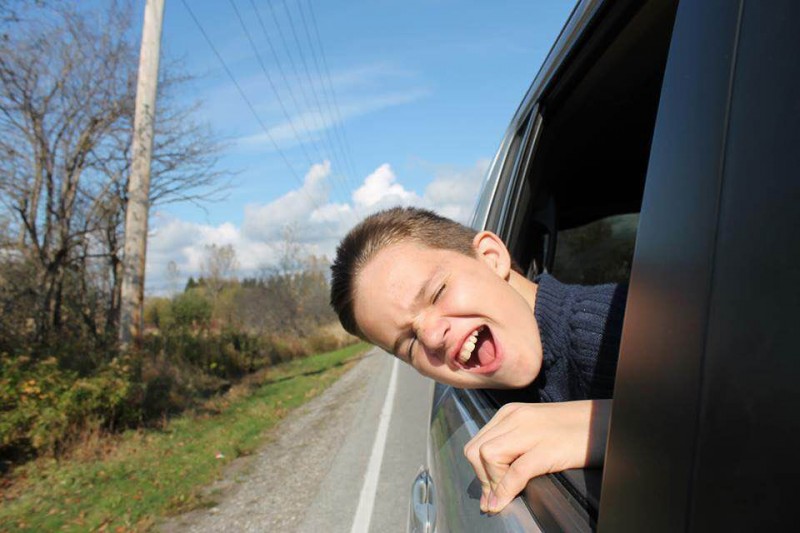Growth with Asperger’s

Unraveling a big sister’s role to help overcome family challenges

Many say the eldest child paves the way for their younger siblings.
They tend to be protective and caring because they are the first of the children in their family to experience puberty, high school and other trying situations.
Often painted as leaders in their family, the eldest may feel it is their personal obligation to help siblings who will soon follow in their footsteps.
Though the “journey” varies from person to person based on a number of different factors, my brother’s circumstances were quite different from mine and other people who I grew up with.
I am the oldest of three, with a sister who is two years younger and a brother who is six years younger.
My brother, Joseph, was diagnosed before the age of six with ADHD (Attention Deficit Hyperactivity Disorder), Asperger’s syndrome and tics.
Impeding his abilities to cope with stress, work, school and social situations, Joseph’s path was new for everyone.
Though he had and continues to have numerous resources and a network of support, my brother will always need to actively work on the social, educational and personal aspects of his life.
Imagine having a Harley Davidson motor for a brain with breaks similar to a tricycle’s.
Now pair that with the natural inability to recognize complex emotion in others like empathy or frustration, also with occasional muscle spasms which you cannot control.
His brain is wired in incredible ways and each day brings new challenges.
I would like to clear the air and share that simply because Joseph is in a separate category cognitively, this does not excuse him from certain treatments or experiences in his day to day existence.
Tension within the family, projects in school, taking part in extracurricular activities and ignorant children are just a few of Joseph’s many obstacles.
He tends to avoid situations that may be stressful or spontaneous; it’s much easier for him to handle a situation if he knows the outcome.
A number of “Aspie” children are quite fond of video games because of their ability to control reality as well as the games visually stimulating graphics.
In a video game, if he hits ‘Command A’ very quickly while holding down button ‘B,’ then a series of unexpected yet controlled reactions will occur.
He knows what is expected and can learn how to master it.
I spoke to Joseph about his feelings toward autism and Aspergers in mainstream society.
His views, from the point of a 13-year-old, are quite insightful.
He said, “I feel as though people these days are very culturally insensitive, more than ever, and in being that way the idea of Autism being common knowledge is a lot more uncommon.”
It is clear there is a disconnect between society and the whole culture surrounding autism and its supporters.
This can lead to an air of insensitivity.
When he speaks about being “culturally insensitive,” that is in relation to the lack of mainstream awareness.
Although I do not like to admit it, creating a lasting and positive relationship with my brother was tougher than one might expect.
There was a long period where his character was still developing and I was not the most sympathetic towards him, even with my depth of understanding.
I saw the impacts his behaviour had on my loved ones — my younger sister in particular — and I was not too forgiving in a few situations.
Growth happens on both ends, and it took a few years for myself to be able to truly relate to him. The state of our relationship now is the best it has ever been. He has overcome many obstacles, personally and socially, and I have as well.
The role of being a big sister is an important part of my life.
And despite any challenges, I’ll continue being the best role model I could be, teaching people that being different isn’t a problem.


